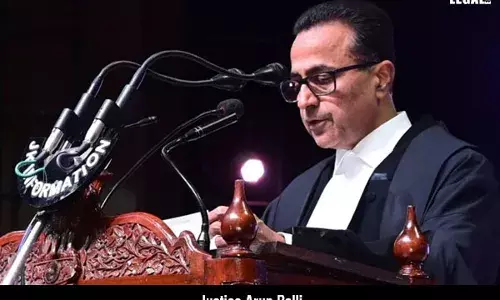Justice Surya Kant: Convicts To Choose Leading Senior Advocates To Represent Them
Over 4,200 offenders need legal aid for filing their appeal or for the grant of bail before the apex court;

Justice Surya Kant: Convicts To Choose Leading Senior Advocates To Represent Them
Over 4,200 offenders need legal aid for filing their appeal or for the grant of bail before the apex court
Justice Surya Kant has stated that convicts who cannot afford lawyers could soon choose a leading senior advocate to represent them before the Supreme Court.
He was speaking at the 24th Commonwealth Law Conference in Malta. The conference was on ‘Democrats and Despots – Does Consensus Work?’
He said the Supreme Court Legal Services Committee (SCLSC) identified over 4,200 convicts who needed legal aid to file their appeals or for a grant of bail before the top court.
The judge added that the SCLSC would circulate the panel of senior advocates to the convicts.
Justice Kant held, “In the next month, before I demit the office of the Legal Service Committee, all these persons will be provided free legal aid. We have decided to circulate a panel of all leading senior advocates of the Supreme Court to render pro bono services. It will be up to the person to choose a lawyer. The new experiment will be introduced and implemented soon.”
He added that though despotic systems were viewed as the antithesis of the democratic ideal, they could work in tandem by building consensus to solve global problems.
The judge expressed, “Issues like global health, climate change, counterterrorism, trade agreements and arms control are areas where both democrats and the despots have a common interest. By focusing on these shared challenges, a mutually agreeable framework can be evolved. Furthermore, the global community must play a pivotal role in facilitating this dialogue.”
He held, “Global institutions like the Commonwealth platforms can help in creating conducive environments for and understanding and compromise.”
Justice Kant highlighted that the Indian judiciary was at the forefront of shaping the moral and ethical fabric of the society. Its judgments came through collaboration and consensus.
Explaining further, he remarked, “The Indian courts do not just interpret the law as a cold command, but as a living document of justice. The Constitution is not a fossilized parchment but a dynamic expression of the people's collective aspirations.”



